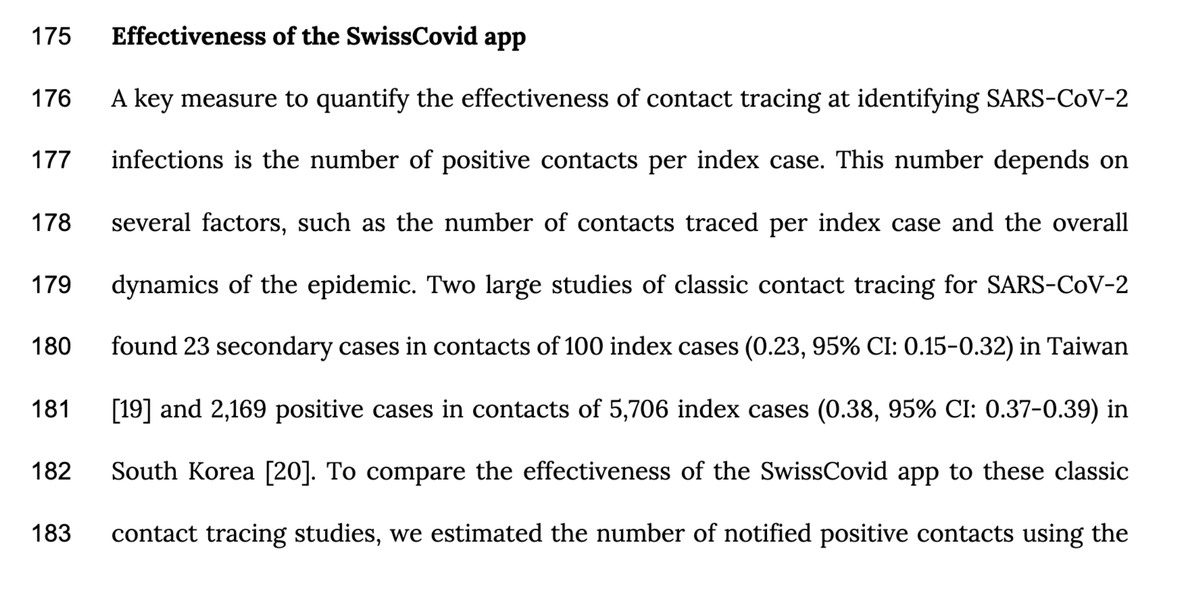This work really makes a plethora of basic mistakes.
I will point at some below.
I will point at some below.
https://twitter.com/marcelsalathe/status/1301965936019283971
1/ Think SwissCovid leads to many calls to the hotline? That's good, right?
Well, you better know what those calls are for. Building a GAEN app is like building on the quicksand of the OS you are using.
Case in point, Apple:
Well, you better know what those calls are for. Building a GAEN app is like building on the quicksand of the OS you are using.
Case in point, Apple:
https://twitter.com/podehaye/status/1301972803638431747?s=20
2/ Think #SwissCovid efficacy is comparable to manual contact tracing? One paper cited is from May 2020, the other July but concerns data collected up until March 2020. Ages ago. We have learned a lot since about the virus, e.g. the heterogeneity of infectiousness 







The mistake is to think manual contact tracers won't adapt to what we learn, and will be limited by the efficacy reached by May.
There is sound research to support the opposite
arxiv.org/abs/2005.02362
There is sound research to support the opposite
arxiv.org/abs/2005.02362
In fact, other digital tools have been developed since to supplement manual contact tracing, some with much more rapid impact than #SwissCovid according to this metric.
Hint: privacy-preserving venue-based tracing is more effective.
Hint: privacy-preserving venue-based tracing is more effective.
3/ This is similar to 1/: those people reporting for tests might be responding to iOS notifications, not SwissCovid notifications. Again, Bayes theorem... 

4/ In a rush to cite a preprint that is 25 hours old supporting their conclusions, it seems like the authors of this #SwissCovid study didn't bother reading the cited Oxford/Google study
Many unrealistic assumptions, especially as relating to #SwissCovid

Many unrealistic assumptions, especially as relating to #SwissCovid
https://twitter.com/podehaye/status/1301790374990696449?s=20

Indeed, in Switzerland, the quarantine is self-imposed for 5 days from the risk exposure moment, unpaid.
And 5/ Bluetooth inaccuracy is way worse than this assumption, as can be seen from this publication by Swiss authorities themselves!
github.com/admin-ch/PT-Sy…
And 5/ Bluetooth inaccuracy is way worse than this assumption, as can be seen from this publication by Swiss authorities themselves!
github.com/admin-ch/PT-Sy…
6/ To understand this one, you need to understand how tests are paid for. If someone has no symptom and gets a test, in CH they have to pay for the test. If they say they got a notification, the test is free. For such a small number of cases, fraud is a relevant factor. 

• • •
Missing some Tweet in this thread? You can try to
force a refresh






